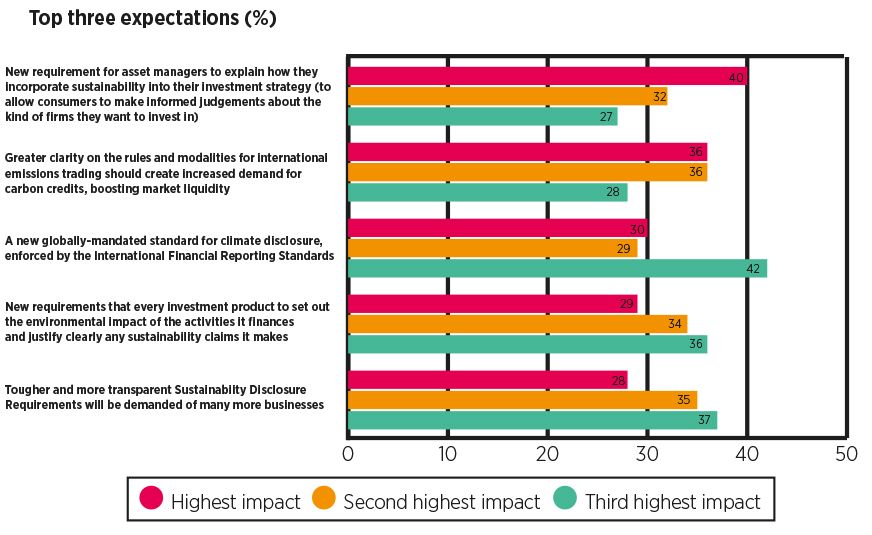Nearly half of some of the largest asset owners think the requirement for asset managers to explain how they incorporate sustainability into their investment strategies was the most impactful development from COP26 in November last year.
This is according to ESG data provider GaiaLens, which in its Preparing for Full ESG Integration survey found 40% of asset owners felt this was the conference’s most significant output.
GaiaLens surveyed 100 asset owners in western Europe and 100 in the US, together representing assets under management in excess of $50.7trn.
More than a third (36%) of asset owners thought ‘greater clarity on the rules and modalities for international emissions trading should create increased demand for carbon credits, boosting market liquidity and potentially driving prices higher’ was the highest impact change promised during COP26, the survey also found.
“Many in the investment community now believe that the value of carbon credits must rise considerably to come closer to reflecting the real long-term cost of emissions to the planet and all of us if we don’t reduce them, at least in line with net-zero targets being set by governments around the world,” it said.
Global standards
Asset owners also see the creation of global standards as an important outcome from COP26, with 30% calling it the most important set of developments.
At the conference in November, the International Financial Reporting Standards (IFRS) announced the creation of the International Sustainability Standards Board, an independent body that will offer global baseline sustainability reporting standards under robust governance and public oversight.
To ensure that corporations and asset owners act to curb climate change, the COP26 conference also proposed standards for global sustainability disclosure to be regulated by the IFRS.
What changes do you see coming out of COP26 that will
impact the importance of ESG scoring?

Gordon Tveito-Duncan, co-founder of GaiaLens, said: “If COP26 taught us anything it was that we need to move towards more robust ESG strategies with greater speed.
“The first step is about building the right data and systems for analysing, scoring and benchmarking that data so that it’s meaningful and can be used to inform sound investment decisions that protect the planet and is inhabitants longer term, as well as preventing investors from losing out. Asset owners must ensure they have the data available to integrate the discussion of E, S and G impact into their business strategies.”
See also: – Five ESG reporting frameworks investors need to know
Finally, 29% of asset owners surveyed rated a new requirement that every investment product must set out the environmental impact of the activities it finances and justify clear sustainability claims of investments held inside those products, as a ‘highest impact’ change.








